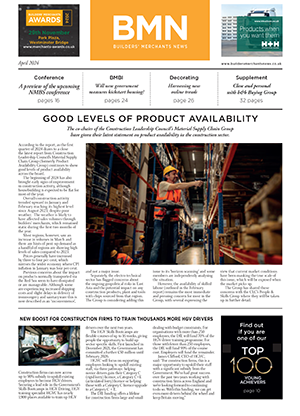The London and South East are facing a major skills crisis, according to a new report by London Chamber of Commerce and Industry (LCCI) and KPMG.
The report, ‘Skills to Build’, indicates that 20% more workers will be required to meet the pipeline of around £96bn of construction projects between 2014 and 2017. This could potentially impact the wider economy as early as April 2015, when a total of more than 600,000 workers will be needed on site to deliver major projects currently in planning.
The industry has experienced great difficulties in recruiting enough skilled workers, for both professional roles and manual trades, to keep pace with new work. According to the report, a 51% increase in training provision would be required to meet demand for skilled labour between 2014 and 2017 to plug a gap of nearly 15,000 people.
Unless the supply of construction labour is increased, housebuilding targets will not be met and the delivery of large infrastructure projects will be jeopardised.
The following recommendations to help fill the skills gap are included in the report:
- Infrastructure UK should drive a commitment to embed skills and employment requirements in public procurement contracts, aimed at both Tier One contractors and suppliers
- Government should ensure schools provide obligatory, quality and unbiased careers advice from Year 7, and submit annual careers reports evaluating the range of careers and training options covered
- Local authorities should maintain and share a pipeline of future projects, with skills responsibility and funding devolved to the most appropriate level of functional economic activity, to enable the commissioning of demand-led training provision
- The Skills Funding Agency should convene industry bodies and representatives to redesign training and apprenticeship frameworks to reflect modern methods of construction, and disseminate them for adoption by training providers.
Richard Threlfall, KPMG UK head of infrastructure, building and construction, said: “For the first time in many generations, the UK has a strong pipeline of construction and infrastructure projects to reinvigorate the economy and drive our future competitiveness. But delivery of that pipeline is now in jeopardy – not for lack of political will or funding, but for lack of a sufficiently large and trained workforce.
“Unless action is taken now, our housing targets will be missed, and infrastructure projects delayed.”
He added: “This report calls on the industry itself to wake up and take responsibility to increase levels of training dramatically. It also calls on government and training providers to recognise that the industry is changing, with greater application of technology and a trend towards offsite manufacturing. The skills required in the industry tomorrow will be very different from the skills required today.
“And, above all, it calls on all in the industry to take steps to boost the image of the construction sector as an attractive career path for the next generation in our schools and colleges.”






